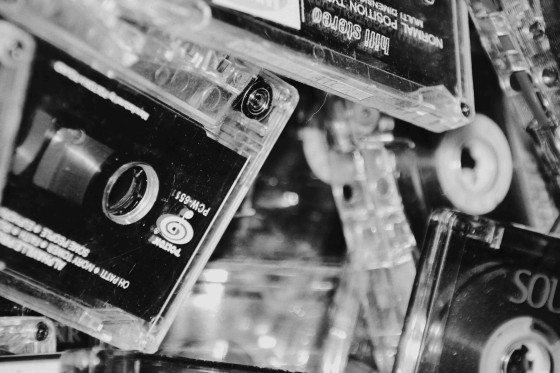How to Plan a Podcast: Tips to Help You Get Started [2026]
Contents

Time. It’s the one resource you can’t get back. There’s no getting around it—planning a podcast, and running the show takes time. That might be a lot, or it might be a little. Where you fall on that scale will depend on a number of unique factors.
One thing’s for sure, though—no sensible person wants to spend every waking hour on a single project, and have little or no room left in the day for anything else in their lives.
With that in mind, I want to offer some time-saving tips to help you make better use of your resources and plan a podcast. Spending less time on creating your podcast doesn’t necessarily mean your show won’t be as good. In fact, often, the opposite can be true.
Efficiency and focus beat simple “hours spent” on any creative project. So what are some things to think about when planning a podcast with a productivity mindset?
Plan A Podcast - Don’t Just Start on a Whim
“Just start” is advice I’ve often given over the years. But, that should come with a few caveats.
Creative people often have a long list of stuff they’d like to do. This might be starting a podcast, on top of learning a musical instrument, whilst also writing a novel. The point is, you can’t do everything (at least not all at once, or not very well). In the words of Joe Abercrombie’s Bloody Nine, “You have to be realistic about these things.”
Look at the hours you have available, once you’ve deducted sleep, work, and hanging out with your friends and family. If you have a couple of hours remaining that you can dedicate to podcasting, then great. But if it looks like all you’ll be doing is “just squeezing in a few minutes wherever possible,” then this is an early warning sign that it’s not going to work. Remember, podcasting is about more than hitting record and talking into a microphone.
There are many more steps, both before and after, that are required in planning a podcast that will deliver something that will draw an engaged audience.
Abandon Your Assumptions
When you plan a podcast, many aspiring podcasters arrive at the medium with a lot of assumptions about what they “must” do. For example, planning to release a new show episode every single week can be powerful, but it isn’t your only option. An alternative approach would be podcasting in seasons. This is where you’d create a self-contained body of podcast episodes (say 6-12), then take a long break before tackling the next installment.
Making a podcast plan for seasons can be great for creating themes around your podcast topics. This makes them easy for new listeners to navigate, and easier for you to create products out of them, too. Seasons are also a good fit for highly-produced narrative podcasts.
This approach is a great way for someone with a seasonal job (a teacher, for example) to run a successful podcast without tying themselves to the weekly record-produce-release treadmill.
There are other assumptions, too. Some of the most popular podcasts in the world regularly release over two hours of episodes. But what’s stopping yours from being less than 10 minutes?
Joe Rogan might do interviews, but why can’t you go solo? Podcast length and format alone are never the reason behind the success of a popular show. Don’t lock yourself into trying to mimic them. Plan a podcast that works for you, and do it well.
Face Your Podcast Plan To-Do List
If you have a couple of hours a week that you can dedicate to planning a podcast, what next? You need to think about the tasks involved in outlining and launching the show. Then, consider the ongoing tasks required to put episodes out on a regular basis.
You’ll find approximate guides on how much time it takes to run a podcast, but there are still so many variables and unique factors.
How much time will it take to plan your podcast episodes? To record? To edit and produce? To write a script and create show notes? To upload and promote?
This is where you’ll use your available time to get the lay of the land with all of these tasks. Some will take longer than you thought. Others can be streamlined without any impact on the quality of your show.
Shorter episodes can mean less recording and production time, but do they need a bit more planning? Remember Mark Twain apologizing for a particularly long letter, reasoning that he “didn’t have time to write a short one?”
At this early stage, it can be a learning curve to find your feet. But facing your to-do list (and being realistic about how long it will take to complete each task) is always much better than the “I’ll just squeeze it in whenever I can” approach.
You Don’t Need to Learn (or Do) Everything
Podcasting pulls together a lot of elements, from planning the structure of content and delivering it in a coherent and engaging manner, to the nuances of audio recording and production. Plus, there are also things like music and sound effects to take into account.
In the past, mastering techniques like compression, equalization, and knowing their way around multitracking software, was as important for podcasters as delivering impactful content that resonated with their target audience.
These days, it’s much more accepted that you don’t need to become an audio engineer to run a great podcast. In fact, a lot of successful podcasters have never opened a Digital Audio Workstation in their life.
Don’t fancy spending a lot of time learning the audio stuff? You can work with a podcast producer, or use a ‘podcast maker’ tool like Alitu.
Even things you can do well—are they really the best use of the hours you have available? Consider outsourcing things like show notes writing and podcast promotion, even if you enjoy them.
Use the limited time you have to do the things that really move the needle with your podcast. Why fritter your time on figuring out podcast hosting when you could be spending it on coming up with topic ideas your listeners will resonate with?
Use Tools for Organisation & Clarity
Just like buying a gym membership won’t automatically make you fitter, using a productivity tool won’t automatically make you better at doing the work.
If you plan your podcast workflow well on a 50p notepad or in a simple text document, then keep on going. That said, there are a lot of good tools and resources out there that can help you to be more efficient, and potentially save you many hours.
I really like Trello (though other board-based task management systems are available). Creating a Trello board for your podcast can be a game-changer.
We’ve already talked about facing your to-do list. Now, each episode can get its own card containing all the info needed for it, along with its own checklist and due date.
Trello is ideal for immediately being able to look at what’s on your plate and see what you should be working on next. Once an episode is published you can archive the card to refer back to later if need be.
Of course, digital tools aren’t without their downsides. You might’ve switched your computer on with noble intentions, but two hours later you find yourself watching a René Higuita compilation highlights video on YouTube.
The good news is that analogue productivity tools exist too, and they can be useful beyond being photo props for coffee shop posers.
Author and podcaster Cal Newport has a great time block planner method that works well for organizing tasks and getting things done. You can use his dedicated planner, or deploy the technique on a cheap notepad.
An alternative to plan your podcast is The Podcast Host Planner which does exactly what it says on the tin (or front cover, as it were). You can organize and document everything, from big-picture goals to timecodes for edits.
Plus, there are regular sections for reflection and growth, too. If you like having everything in one place it's a great option.
How to Plan a Podcast: Final Thoughts
Spending blocks of deliberate and focused time on planning your podcasting can give you a solid advantage over other shows in your space. Consistently delivering episode after episode of quality content for your listeners will build a core of fans around your podcast.
With only a couple of hours a week, you can produce not just a good podcast, but a great one. Who knows, it may even rank on Apple Podcasts charts someday.
On the other hand, you can spend 10+ unscheduled and drawn-out hours chasing your tail all week, and release a podcast episode that sounds like you spent hardly any time on it.
Remember, you're only as good as your last episode, so why risk turning your audience off with poor planning?
Consider employing the use of tools and services, too. These can act as prompts and keep you accountable. They can help you plan, focus, and even offload the work you either can’t do very well or simply can't get to.
Some of the options I mention here are Lower Street’s Podcast Editing Service, ‘Podcast Maker’ app Alitu, task management system Trello, and The Podcast Host Planner.
Figure out which ones look like a good fit for you, and give them a shot!
Thinking about launching a podcast for your brand?
If you need a hand launching, producing, or promoting your branded podcast, the Lower Street team is here to help. Get in touch for a free consultation.
Contact us

![B2B Podcasting: Benefits, Best Practices and Statistics [2026]](/img/asset/bWFpbi9pbWcvYjJiLXBvZGNhc3QtZm9yLW9yZ2FuaXphdGlvbnMuanBn?w=560&fm=jpg&s=2072cc511bbd592a6a35d7d4c15bf735)


![How to Start a Podcast For Your Brand [2025]| Lower Street](/img/asset/bWFpbi9pbWcvYnVzaW5lc3MtcG9kY2FzdHMucG5n?w=560&fm=jpg&s=60bbfecef1d8d53381e02b74cb383a3e)